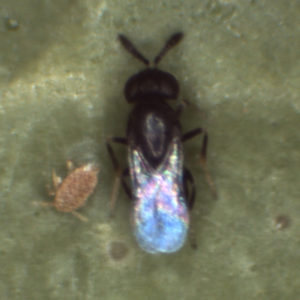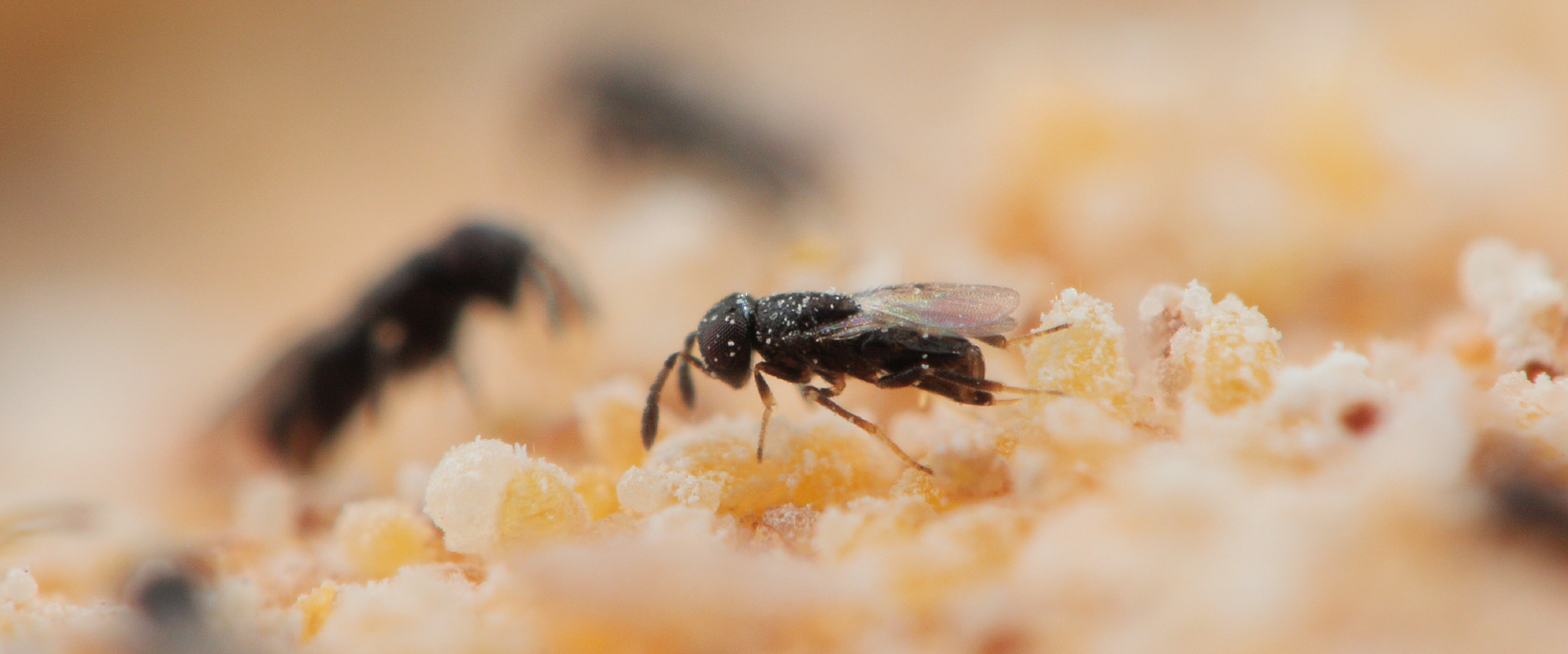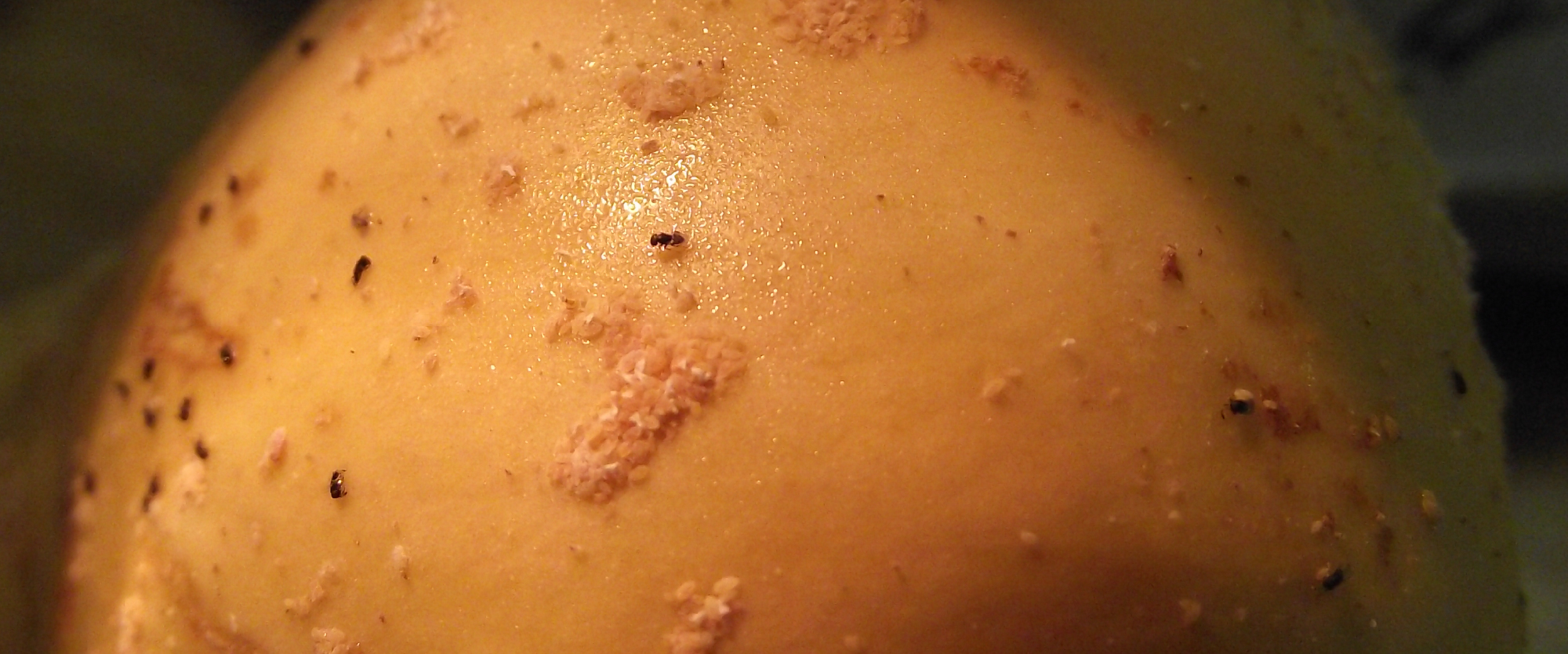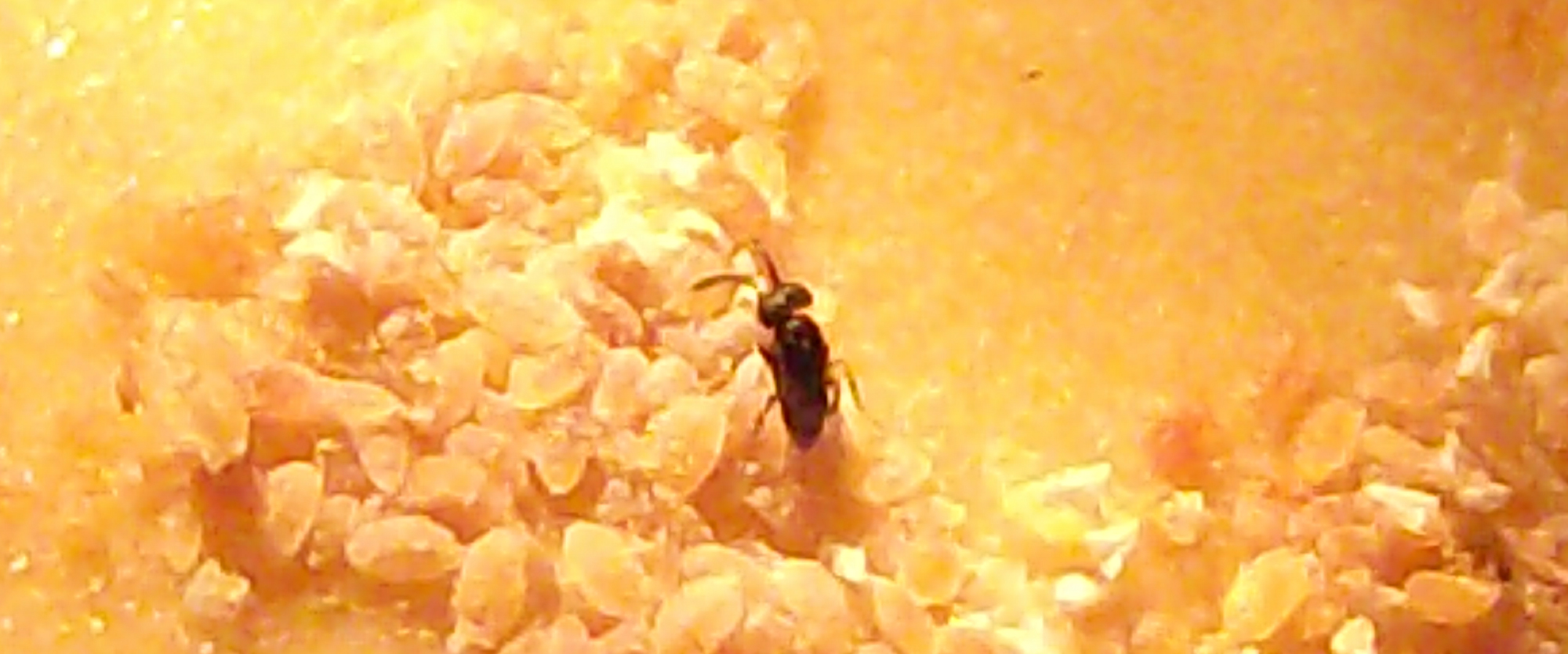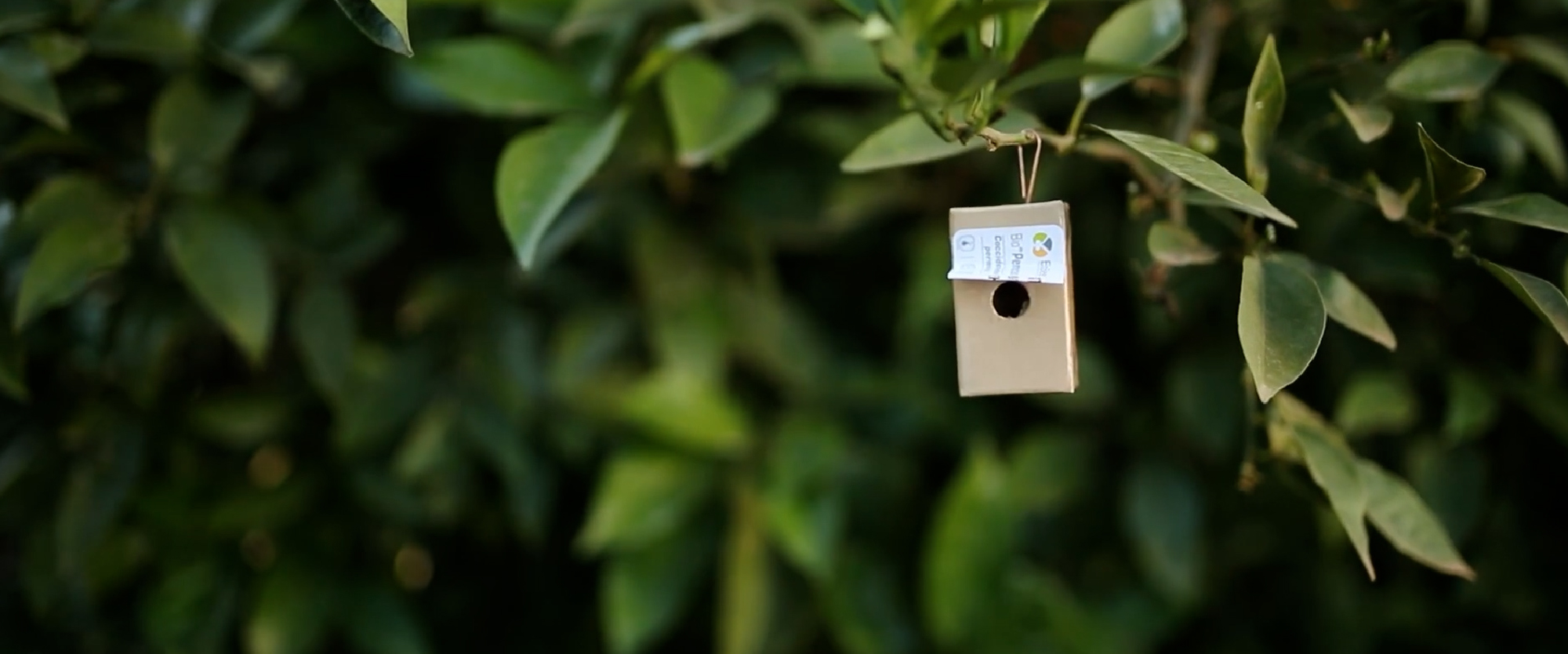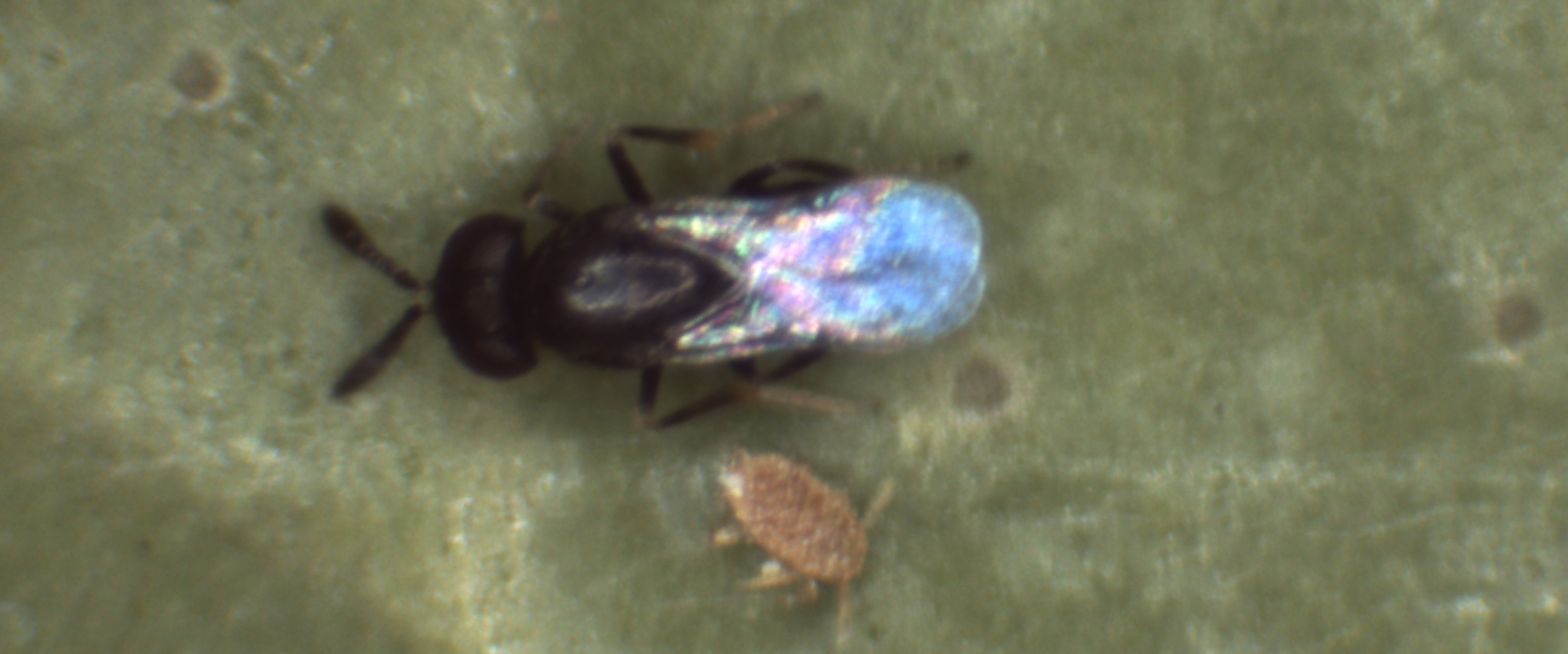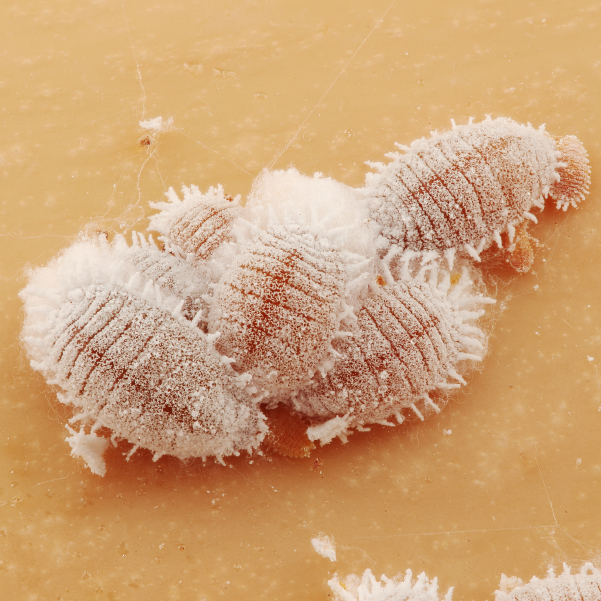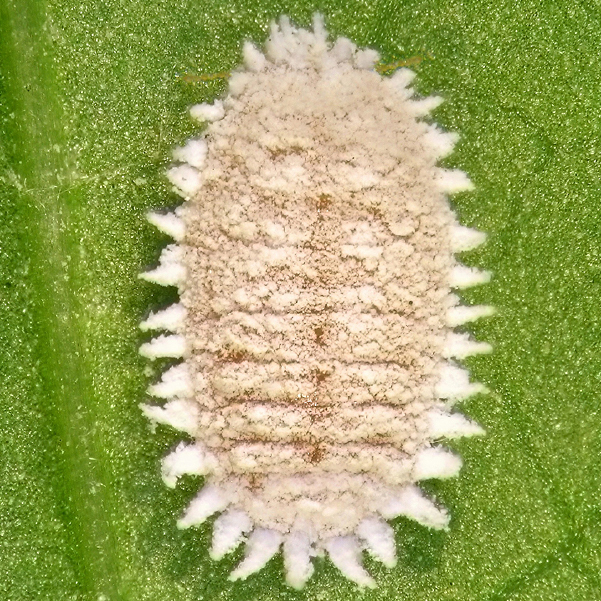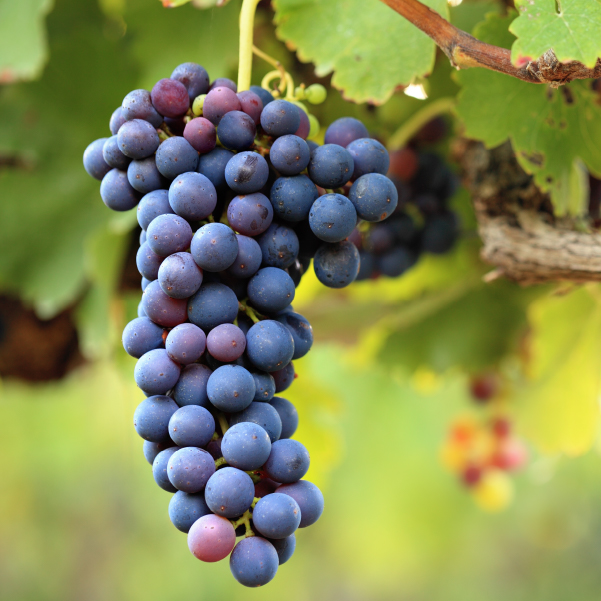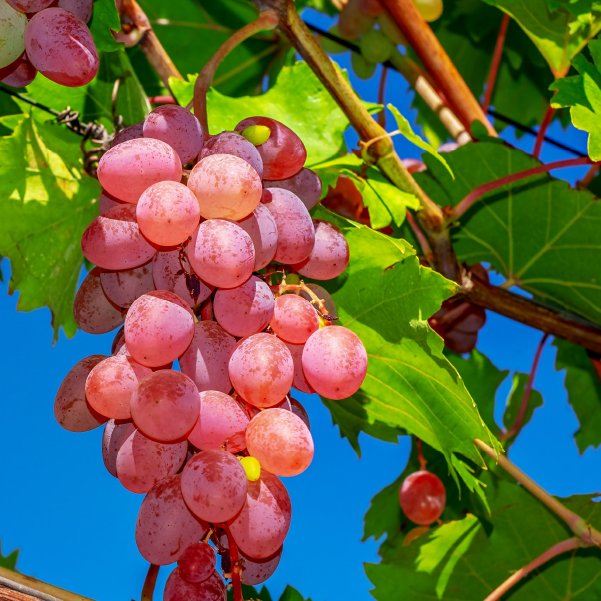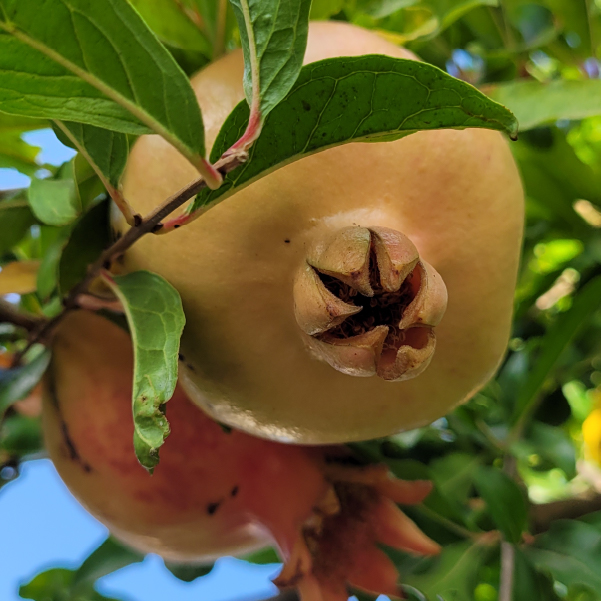BioPerminutus (Coccidoxenoides perminutus) is a parasitic wasp for the control of the citrus mealybug and the vine mealybug.
Adult wasps will emerge from the mummies within one to three days (depending upon the ambient temperature and the age of the pupa within the mummy). Immediately upon emergence, the wasps will begin searching for a host suitable to parasitize, ie. first, second and third instar larvae.
Consult your local BioBee representative for additional details.
Target Pests
Product
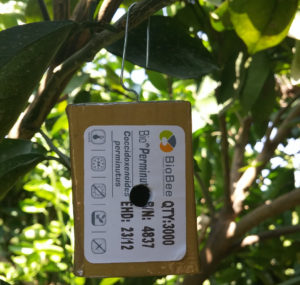
BioPerminutus is packaged in boxes containing parasitized mummies . Each box contains either over 1,000 or over 3,000 mummies.
Application
- BioPerminitus is shipped in temperature controlled boxes which must be kept intact until reaching the end-user
- Before applying, treat the area against ants.
- Position the bottle far enough from the twig, so ants can’t get into it and attack the BioPerminutus.
- Puncture the sticker in the center of the box, exposing the exit hole.
- Place the package in a shaded place, protected from rain and dew, preferably close to a mealybug-infested spot.
- Following their emergence, the wasps will fly out of the package and disperse in between the plants.
Dont’s
- Do not touch the mummies inside the box.
- Do not sprinkle the mummies actively from the container.
Before combining BioPerminutus with any chemical pesticide in the crop, please consult your BioBee technical field representative.
Crops
Storage
-

Storage temperature
-
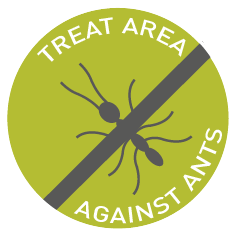
Treat area against ants
-

Do not store in sunlight
-

Do not refrigerate
-
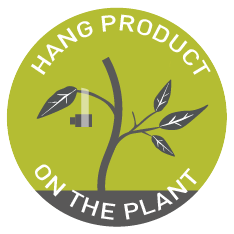
Hang product on the plant
-

Apply early morning or late afternoon
Disclaimer
BioBee Sde Eliyahu Ltd. produces and markets biological products. Production is carried out using innovative techniques under controlled quality assurance standards such as ISO 9001:2015, as well as IOBC’s international standards for mass-production of insects. All products are tested to meet specification requirements before leaving the factory.
The success of biological pest control is affected by the crop’s initial pest population (upon application of the product), weather conditions and chemical residue present in the crop, among other possible aggravating factors.
Under no circumstance shall BioBee be liable for the outcome of the implementation in the field, as it has no control over local conditions, the application method, or the possible improper treatment/storage of the product.
